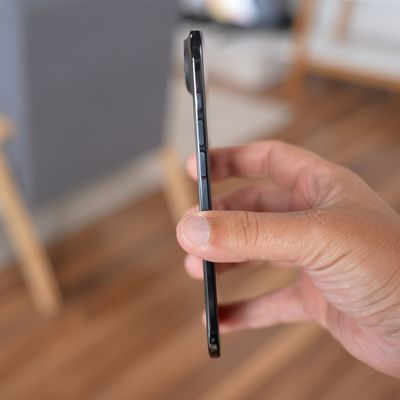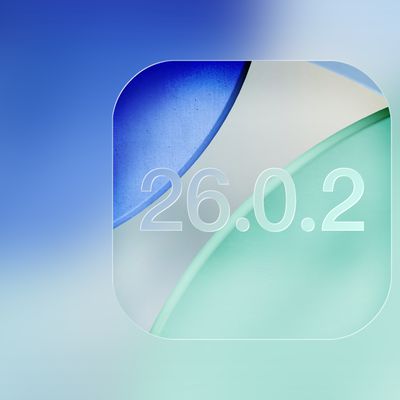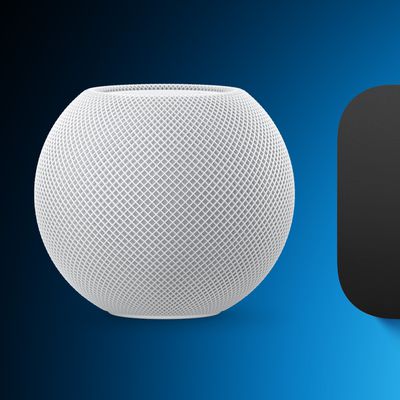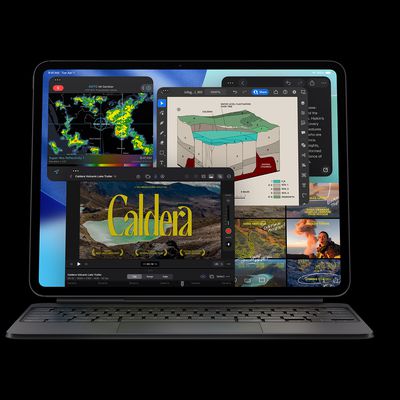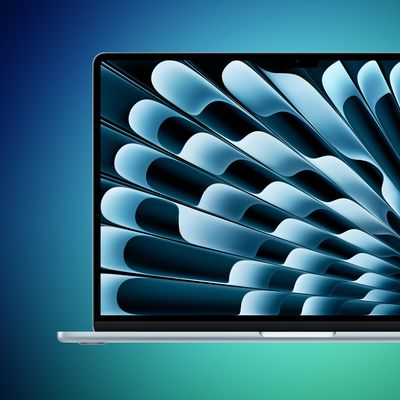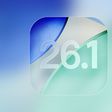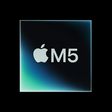Apple's Research on Tactile Feedback for Touchscreen Keyboard Revisited
In the wake of yesterday's provocative hint suggesting that users would be "surprised how you interact" with Apple's much-rumored tablet, speculation has begun about what that surprise might be. Conveniently enough, a patent application published today entitled "Keystroke tactility arrangement on a smooth touch surface" revisits previously-revealed technology from Apple regarding possible tactile feedback for a touchscreen device such as a tablet.
The technology described in the patent application addresses several mechanisms for providing tactile feedback for a keyboard displayed on a smooth touchscreen surface, including: 1) use of protruding bumps to identify keys; 2) use of an "articulating frame" that can raise and lower depending on whether the screen is being used for gesturing or typing to offer the user a frame of reference for key edges; and 3) use of fixed key edges below a compliant gel or foam surface that would be smooth when subjected to light pressure of gesturing but offering tactile ridges under harder pressure of typing.
Disclosed are four arrangements for providing tactility on a touch surface keyboard. One approach is to provide tactile feedback mechanisms, such as dots, bars, or other shapes on all or many keys. In another embodiment, an articulating frame may be provided that extends when the surface is being used in a typing mode and retracts when the surface is used in some other mode, e.g., a pointing mode. The articulating frame may provide key edge ridges that define the boundaries of the key regions or may provide tactile feedback mechanisms within the key regions. The articulating frame may also be configured to cause concave depressions similar to mechanical key caps in the surface. In another embodiment, a rigid, non-articulating frame may be provided beneath the surface. A user will then feel higher resistance when pressing away from the key centers, but will feel a softer resistance at the key center.
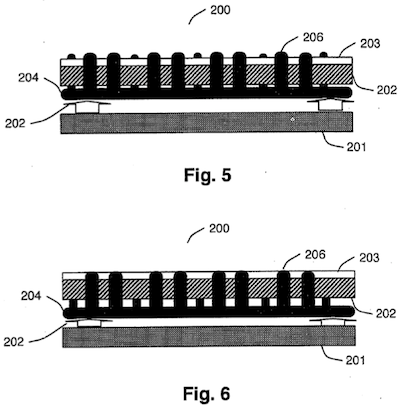 "Articulated frame" for demarcating key edges in raised (top) and lowered (bottom) positions
"Articulated frame" for demarcating key edges in raised (top) and lowered (bottom) positionsThe patent application also describes the use of automatic methods for activation and deactivation of the articulated frame, utilizing the touchscreen capabilities to sense sliding or mouse-click-like tapping as requiring the frame to be deactivated, and "home row" positioning of fingers or asynchronous tapping as requiring the frame to be activated.
This new patent application, filed in August, is actually a divisional of a previous application filed in April 2006, with the new application focusing only on touchscreen-based keyboard applications. The patent application is credited to Wayne Westerman, founder of FingerWorks, the company acquired by Apple in 2005 that is responsible for the multi-touch technology used in the iPhone and a number of other Apple products.
Popular Stories
Apple plans to cut production of the iPhone Air amid underwhelming sales performance, Japan's Mizuho Securities believes (via The Elec).
The Japanese investment banking and securities firm claims that the iPhone 17 Pro and iPhone 17 Pro Max are seeing higher sales than their predecessors during the same period last year, while the standard iPhone 17 is a major success, performing...
iOS 26 was released last month, but the software train never stops, and iOS 26.1 beta testing is already underway. So far, iOS 26.1 makes both Apple Intelligence and Live Translation on compatible AirPods available in additional languages, and it includes some other minor changes across the Apple Music, Calendar, Photos, Clock, and Safari apps.
More features and changes will follow in future ...
Apple's software engineers continue to internally test iOS 26.0.2, according to MacRumors logs, which have been a reliable indicator of upcoming iOS versions.
iOS 26.0.2 will be a minor update that addresses bugs and/or security vulnerabilities, but we do not know any specific details yet.
The update will likely be released by the end of next week.
Last month, Apple released iOS 26.0.1,...
Apple on Wednesday updated the 14-inch MacBook Pro, iPad Pro, and Vision Pro with its next-generation M5 chip, but previous rumors have indicated that the company still plans to announce at least a few additional products before the end of the year.
The following Apple products have at one point been rumored to be updated in 2025, although it is unclear if the timeframe for any of them has...
iOS 26.4 is expected to introduce a revamped version of Siri powered by Apple Intelligence, but not everyone is satisfied with how well it works.
In his Power On newsletter today, Bloomberg's Mark Gurman said some of Apple's software engineers have "concerns" about the overhauled Siri's performance. However, he did not provide any specific details about the shortcomings.
iOS 26.4 will...
While the new iPad Pro's headline feature is the M5 chip, the device has some other changes, including N1 and C1X chips, faster storage speeds, and more.
With the M5 chip, the new iPad Pro has up to a 20% faster CPU and up to a 40% faster GPU compared to the previous model with the M4 chip, according to Geekbench 6 results. Keep in mind that 256GB and 512GB configurations have a 9-core CPU,...
Apple on Wednesday updated the 14-inch MacBook Pro base model with an M5 chip, and there are two key storage-related upgrades beyond that chip bump.
First, Apple says the new 14-inch MacBook Pro offers up to 2× faster SSD performance than the equivalent previous-generation model, so read and write speeds should get a significant boost. Apple says it is using "the latest storage technology," ...
Apple plans to launch MacBook Air models equipped with the new M5 chip in spring 2026, according to Bloomberg's Mark Gurman. Apple is also working on M5 Pro and M5 Max MacBook Pro models that will come early in the year.
Neither the MacBook Pro models nor the MacBook Air models are expected to get design changes, with Apple focusing on simple chip upgrades. In the case of the MacBook Pro, a m...
The first alleged benchmark result for the M5 chip in the new 14-inch MacBook Pro has surfaced, allowing for some performance comparisons.
Based on a single unconfirmed result uploaded to the Geekbench 6 database today, the M5 chip has pulled off an impressive feat. Specifically, the chip achieved a score of 4,263 for single-core CPU performance, which is the highest single-core score that...



